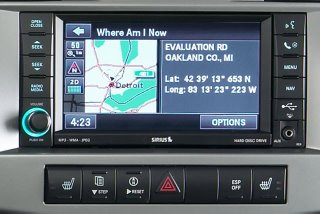GRANT ROBERTSON
Globe and Mail Update
Canada's two satellite radio companies are racing to lock up deals with car manufacturers, hoping to attract new subscribers with factory-installed receivers — and the number of contracts still up for grabs is dwindling fast.
After a flurry of agreements signed by XM Canada and Sirius Canada Inc. in the industry's first year, only a few auto makers are left to be courted, setting the stage for a potentially intense battle in 2007.
One more car maker will be taken off the table on Monday when XM Canada's parent, Canadian Satellite Radio Holdings Inc., announces a multiyear agreement with Markham, Ont.-based Hyundai Canada Inc. to install receivers on two of the company's models.
That will leave only a few major auto names for XM and Sirius to fight over, including Kia, Mazda and the high-end luxury brands Porsche and Mercedes.
Some analysts believe the auto sector is satellite radio's best chance at growing quickly. XM Canada has so far commanded the lion's share of those contracts, offering stock and cash to ink agreements with General Motors of Canada Ltd., Honda Canada Inc., Nissan Canada Inc. and others.
Toronto-based Sirius Canada has agreements with companies such as Ford Motor Co. of Canada Ltd. and BMW Canada Inc., but is focusing on retail sales. It will add Audi in late-2008 when a contract with XM is set to expire.
Sirius Canada claims a huge lead in retail sales so far, suggesting it sells about 70 per cent of the receivers bought through major outlets such as Future Shop, Best Buy, Wal-Mart and Canadian Tire.
Responding to that figure, Canadian Satellite Radio chief executive officer John Bitove said his company will have an 80-per-cent share of the factory-installed satellite radio market for new cars in 2007.
Industry estimates peg that number at between 300,000 and 500,00 receivers.
“Based on where some of these negotiations were going before we launched last year, if you would have told me we'd have half these car company deals done I would have been pleased,” Mr. Bitove said.
“There's four key components that were required to get them done. Some were cash, some were stock, some get a commission off the subscription fee, some get a one-time fee. . . . It's usually a blend of all of the above.”
Satellite radio launched a year ago in Canada. The industry has posted deep financial losses since then as each company burns through startup cash and spends heavily to lure paying subscribers.
Toronto-based Canadian Satellite Radio lost more than $100-million in its first year of operation, and the company's stock has languished since going public last December at $16. The stock closed at $7.50 on the Toronto Stock Exchange last week.
Sirius Canada, privately owned, doesn't disclose its finances. But, like XM Canada, it doesn't expect to be profitable for the first few years.
Both companies broadcast roughly 100 channels of music and talk radio at a subscription fee to listeners of about $15 a month. Convincing listeners to pay for satellite radio, which has fewer commercials and touts big-name celebrities such as Howard Stern, Martha Stewart and Oprah as on-air hosts, is the industry's biggest challenge.
New-car buyers usually get a three-month trial, but the companies must convince them to sign up long term, rather than tune into free commercial radio.South of the border, the companies' U.S. affiliates have a conversion rate — the number of car buyers who sign up after the trial ends — of approximately 55 to 60 per cent.
Mr. Bitove said Canadian Satellite Radio's figure has been below that in its first year, but is rising.
“We're trending ahead of where the U.S. would have been by this point in time, and we're getting closer to the U.S. number as each month goes by,” Mr. Bitove said.
Sirius Canada is winning the subscription battle in this country, announcing 200,000 paying customers in its first year, compared with 91,200 reported by XM Canada.
“We made a lot of investments and aggressively went after retail knowing how important retail would be for the first couple of years,” Sirius Canada CEO Mark Redmond said recently.

